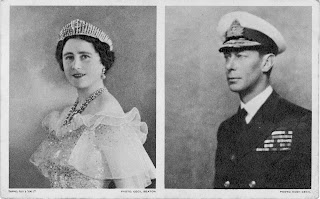So the BBC WW2 Board has closed! Despite the short warning it did seem rather abrupt, just as I was about to respond to this question, posted by MMCAndrew (U8964448) three weeks ago:
Actually, as Ron has pointed out to me, the BBC Noticeboard is still open, but I'll let this stand.I am currently writing an essay on the relationships between the Italian people and allied soldiers during 1943-1945. Can anyone help me?In my experience, many Allied soldiers who served in the bitter fighting in Italy understandably had little knowledge of what Italian civilians experienced in WW2 or of the civil war which raged in the North.
I first met Allied soldiers in April 1945 just before Mussolini was strung up in Milan - soldiers of the Imperial Light Horse and Kimberley Regiment of the 6th South African Armoured Division. I recall that my immediate impression was that they were all immensely rich and had food in abundance every single day. I also remember the intense relief and growing confidence that I would survive to the next day - although I lost two of my close friends to typhus in the first few months of 'peace'.
There is only one book which captures all this, recently published, and which more than answers the question regarding relationships between the Italian people and Allied soldiers during 1943-1945. It is the magisterial and accurate
The Fall of Mussolini - Italy, the Italians, and the Second World War by Philip Morgan, a Senior Lecturer at the University of Hull (Oxford University Press, 2007, ISBN 978-0-19-280247-7).
Philip Morgan's account illuminates both the causes and the consequences of the fall of Mussolini on 25 July 1943. From the cover: [He]
shows how Italians of all classes coped with the extraordinary pressures of wartime living, both on the military and home fronts ... He goes on to examine how the Italian people responded to the invasion and occupation of their country by both Nazi-German and Anglo-American forces - and how crucial this period was in shaping Italy's post-war sense of nationhood and transition to democracy.Hitler was incandescent with fury at the Italian 'betrayal', and as a direct consequence the German occupation in the North was extremely vicious, largely entrusted to Waffen-SS units, brutalised in Russia fighting Russian partisans, and to Cossack units allied to the Germans. The only comparable Nazi occupied country was Poland, added to which there was incessant Allied bombing and fighter strafing of anything that moved. There was constant hunger and the constant threat, if you were over 14, of being rounded up, crammed into a cattle truck, and sent to slave-labour in Germany, I twice scraped out of situations like that by the skin of my teeth - and heaven help you if you just happened to be an Italian Jew!
But even Italians often forget that the South suffered too, as Morgan says
... it is salutary to remember, also, that German troops retreating through southern Italy in September and October 1943 killed over 1,500 people in a violently brief occupation. Most of the victims were civilians resisting the Germans' retreat and their forcible ejection of them from their homes, as in Cassino, or people killed in reprisal for such resistance, or [the collapsed Italian army's]
military stragglers.
And the formidable German defensive lines, such as the Gustav Line and the Gothic Line? The earthworks were largely built by civilian forced labour.
As for the Allies, as Footslogger says:
That is not to say that troops from the British, US, Canadian, New Zealand and Indian armies were all gentlemen, but on the whole we had felt a great deal of sympathy for the horrors the average Italian civilian had to put up mainly, the elderly, the women and children as most of the able bodied men had been taken by the Germans to do forced labour, and we treated them accordingly.My own memory is confined to South Africans only - they were warm and friendly and behaved well.






















